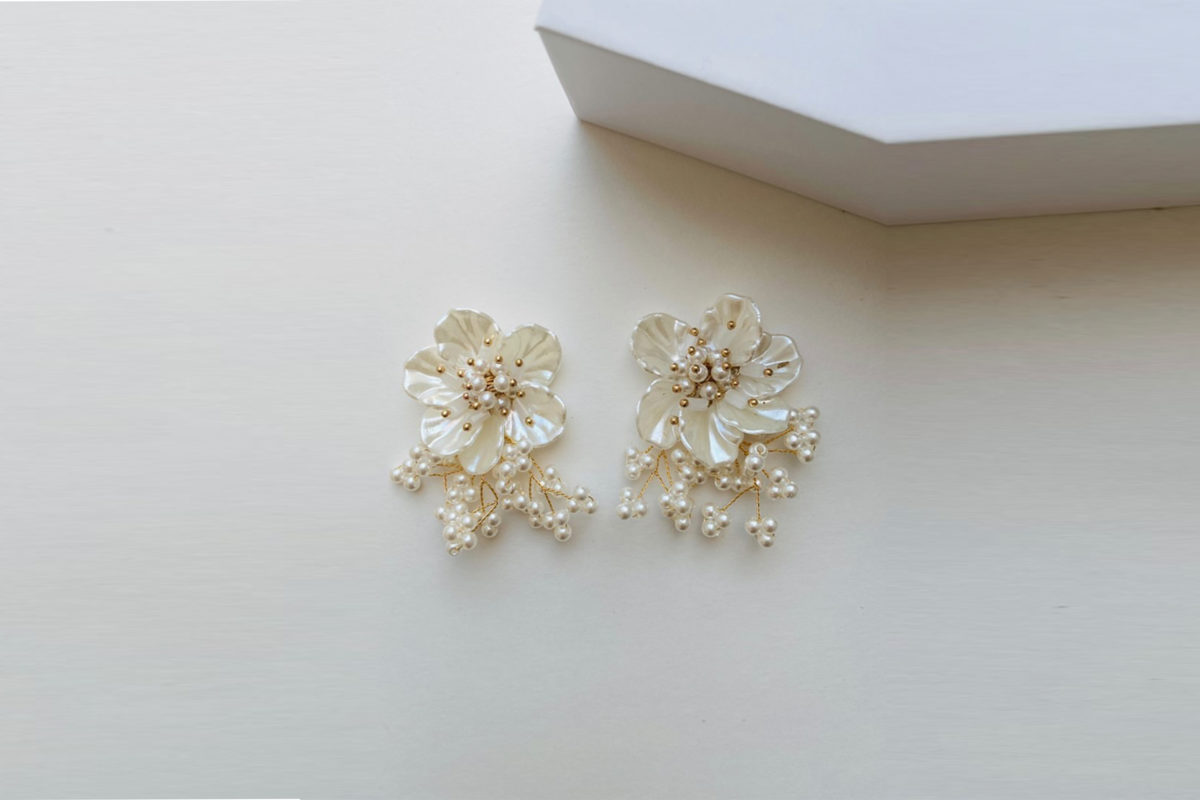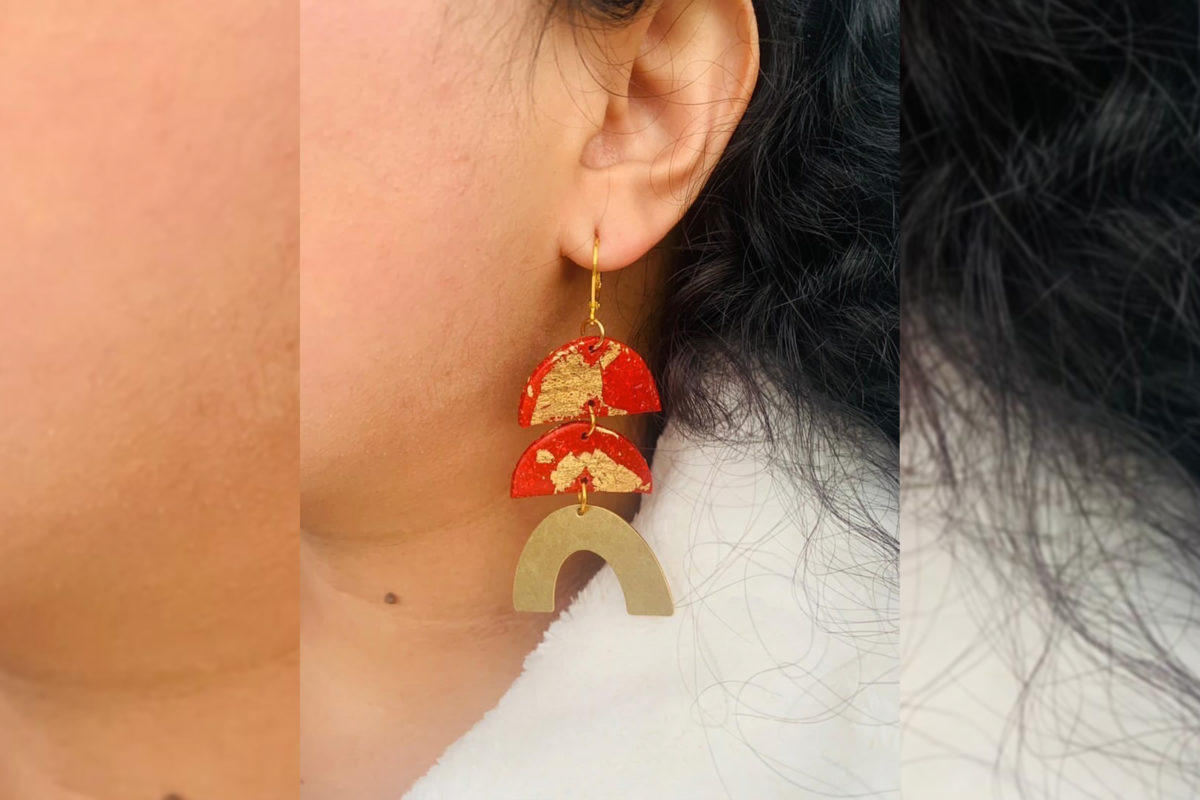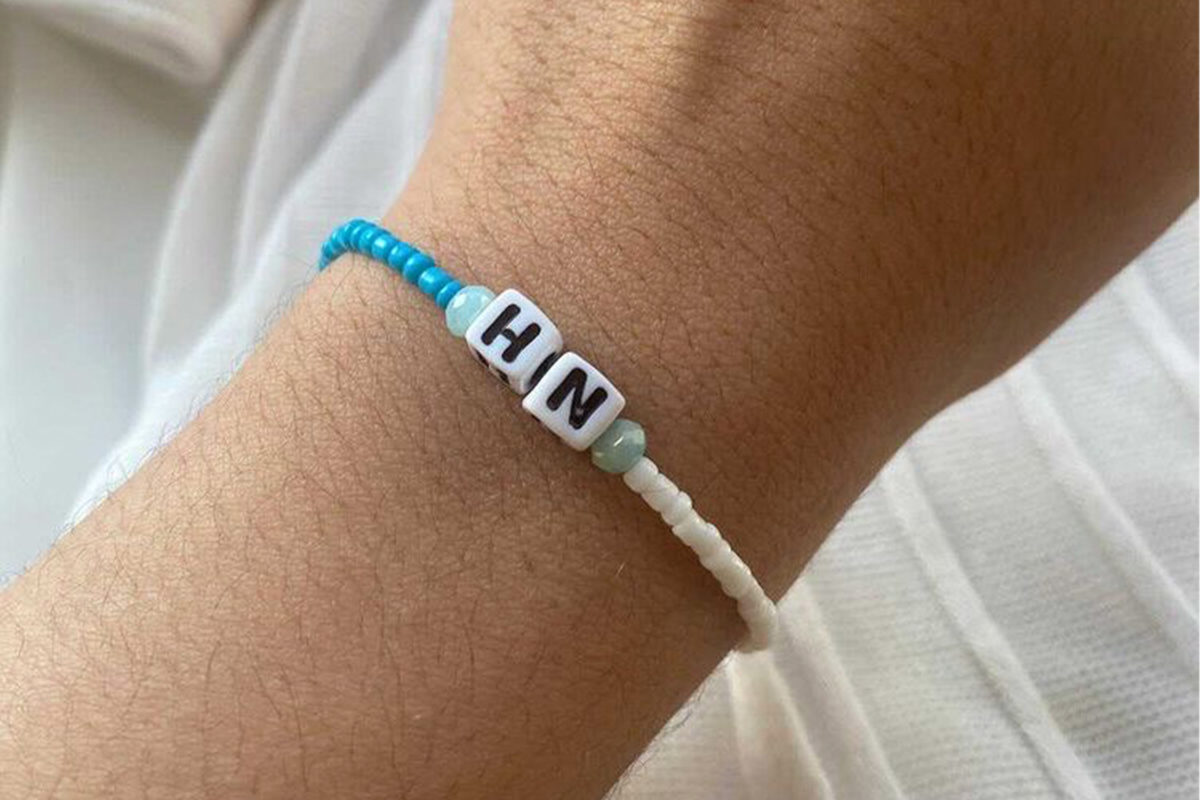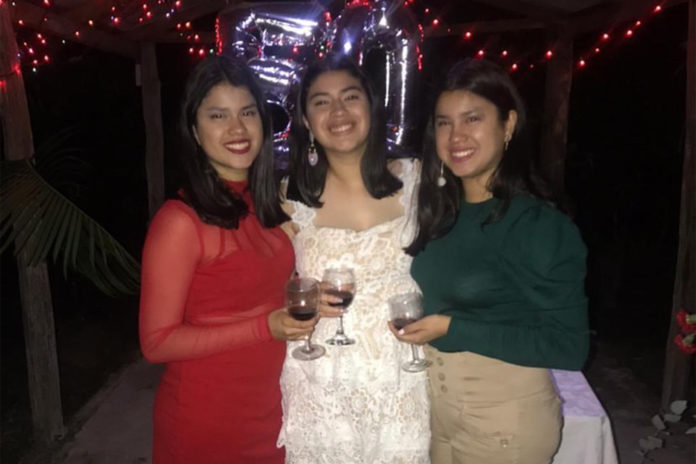Monica and Valeria Boquin are businesswomen by blood. They sold stickers and jewelry when they were in primary school and grew up surrounded by family members who had side hustles.
“My parents, my mom especially, always taught us ‘you need to become your own boss,’” said Monica.
The St. Thomas University students are twins from Honduras. They wanted to start a business when they came to Canada, but they said they didn’t have the connections or the resources they had back home.
During their second year of university, in the fall of 2019, they started a business where they bought skincare products from third-party producers and sold them on an Instagram page. But eventually, they grew tired of it because it wasn’t something they were passionate about.
That December, they went home for Christmas for the first time since they arrived in Canada. Once again, they were surrounded by the entrepreneurial spirit of their family members.
One of their aunts, who has cancer, had to stop working to do her treatment, but started a jewelry business to make ends meet and help pay for the education of her three children, two in medical school and one studying in Germany.
She and another aunt inspired the sisters to give another shot at starting their own business.
“She did this despite all the adversities in her life and she has a very positive attitude, that’s something we could do as well,” said Monica.
The twins also have a younger sister, Alessandra, who is in her first year of online learning at the University of New Brunswick. The three sisters founded their jewelry store a week before the twins left Honduras and named it Vam Vam, which stands for Valeria, Alessandra and Monica.
Three days before the twins left for Canada to start a new school term, the aunt gave the Vam Vam sisters a five-hour crash course on how to make jewelry and went with them to buy the tools and supplies they’d need. The sisters invested $600 in materials.
Valeria said she’s the one who mainly makes the products. Since she was seven, she’s had a knack for making bracelets and earrings. Her aunt taught her how to wire beads together, how to measure wire and cut it, as well as the name and the purpose of each tool.

Still, the learning didn’t stop there. Valeria said she knew the basics when she came back to Canada, but she kept learning more difficult techniques by drawing inspiration from videos or photos she found online. The twins said that they have mostly taught themselves because they weren’t able to have that much time with their aunt.
But with time and practice, making jewelry became easier. Valeria said she’s used to making the jewelry and she knows the process by heart. Now, the most complicated earrings take her an hour at most to make and the smaller pieces take 30 minutes. She said she’s picky with the results — she wants them to look “perfect and symmetrical.”
Though sometimes, she follows her imagination and lets her hands wander.
“Sometimes we just grab materials and start making something new out of nowhere,” said Valeria.
Valeria said each sister does what they do best. While Valeria is at the forefront of the jewelry-making process, Monica oversees the business’ finances. She said she’s not good at making jewelry. Alessandra is in charge of the website and marketing, and she’s in the process of rebranding the online store. She also makes jewelry and sells it in Honduras, as the twins left her half of the batch of materials.
When the sisters returned to Canada, they tried to start working on their business in January and February, but put it on hiatus because they were too busy with school. They started again in April, but it was a trial-and-error process of making jewelry and building the website.
Now that it’s been almost a year since the twins brought materials from Honduras, they have run out of some, including precious stones and flowers. Valeria said it’s been difficult to find the materials in Fredericton, and if they do, they are pricier than what they would be in Honduras, so she’s started to incorporate more wire in the products.
There’s a ritual behind Valeria’s jewelry-making process. She first cleans her workspace and, depending on the product she’s working on, she gets in the zone. If she’s working on products with wire, which require more concentration, she works in a quiet environment. But, if she’s working on polymer clay products, she blasts reggaeton music, which makes her feel connected to her Latin American roots, while talking to her sister.

The sisters hold each other accountable. They demand from each other high-quality work and say whenever someone isn’t doing a good job. Monica said that Alessandra, even from miles away, gets angry whenever the twins’ quality of work isn’t good.
“She demands of us, even though she knows we’re swamped, and everything she does is go to school and she doesn’t have a job. But she demands from us hard work, and we demand that from her, so that’s how it plays out,” said Monica.
A leap of faith
Though the twins spent the whole summer working on the store, they didn’t tell their friends about it until the start of classes, when they shared on Instagram that they were the brains behind the operation.
Monica said they didn’t have the confidence to tell their close friends about the store yet because they weren’t satisfied with the products and were still testing the store. They didn’t like how the website looked either, as it was changing from month to month.
The big breakthrough happened when Monica commented on an Instagram page that promotes small businesses that she and her sisters started a jewelry business. Monica shared the comment on her personal Instagram and the rest is history — the sisters were flooded with sales that night, the most they’ve ever had.
“We felt really loved as well — people sharing, reaching out to us, it was really nice,” said Valeria.
That post was a big step for the three sisters, who had a talk before deciding whether to step into the light or not. Valeria said she had to make it happen, while Monica said that she still was a bit nervous that the page and the products weren’t as good.
But what pushed them to take the leap of faith were the compliments they received from their customers, strangers who bought their products at third-party markets in Fredericton or through their online store. They made them feel it was safe to expand the business.
In November, they brought in about $500 in sales and used $200 to buy new materials.
Working bees
Monica and Valeria said they think it’s more challenging to keep up with the business now than in the summer because they have to balance work with school. Sometimes they have to spend a whole day taking product photos, which is time that they could’ve used to do homework, said Valeria.
Still, working on their store isn’t a burden. It helps them relax when they are feeling overwhelmed.
“You never feel like you’re behind or you wasted your time, it’s more like you invested in yourself,” said Valeria, to which Monica added that that’s the difference between working a job to get paid and doing something because you love it.
In the summer, Valeria worked 40 hours a week as a Home Depot essential worker and 35 hours a week at The Ville. She woke up at 7 a.m., worked from 8 a.m. to 4 p.m. at Home Depot, came home at 5 p.m. and teleworked for the afternoon at The Ville. At around 11 at night, she would start working on the store and sometimes stay up as late as 3 a.m. Monica worked part-time at Chapters and had a bit more time to work on the store.
Even if she’s busy all the time, Valeria said she knows her limits and when she needs to rest. To her, it’s easy to find a balance.

The sisters pay for all of their expenses, including international tuition and living costs. Now that the school year is in full-swing, Monica works six jobs in between on and off-campus, while Valeria works four. Aside from working, the sisters volunteer with a non-profit organization. Both are pursuing honours in human rights.
Though they are busy, the sisters make time to eat each meal together. Valeria is in charge of cooking breakfast, with a pineapple and celery smoothie as one of her regulars, while Monica tackles lunch, and whoever is available cooks dinner.
“I wouldn’t be able to do anything if it wasn’t because of Valeria,” said Monica.
Amidst all the process, the three sisters have gotten closer. Valeria said they’ve always been close, but now that they have meetings about the business more frequently, they talk more. In her own words, it’s become an “excuse” to connect more. Aside from discussing business-related things, they talk about their personal lives and share everything with each other. But they are clear when it comes to separating business and pleasure.
“I feel like we also have a difference between when we have business meetings and we talk about what’s going on,” said Valeria, “and when we’re sisters,” added Monica.
Helping their people
The sisters launched a product to raise funds to help people in Honduras who were impacted by Hurricane Eta, which hit Central America in early November.
The sisters’ relatives were safe, but they wanted to do something to help and launched their “Honduras” bracelet, which had white and blue beads that stand up for the country’s flag colours and two bigger beads that read “H” and “N” in the centre. For each sale, they donated 50 per cent to people in Honduras.
Alessandra came up with the idea but Monica designed the bracelets and made them, even if she wasn’t keen on it, because Valeria was busy with other orders. Monica said that their dream has always been to help their country, and the project is something they felt passionate about because it was a way to make a change even from miles away.
“It makes you feel like you’re actually doing something for your people. You know, that’s your homeland,” said Valeria.

They have raised over $100 with the bracelets. They said it’s been heartbreaking to watch what their country has gone through since they’ve come to Canada, including political riots.
But the Honduras bracelet fundraiser isn’t the only way in which the twins give back to the country that watched them grow up. For every sale, whatever the product may be, they donate 20 per cent to two organizations that work with youth at risk in Honduras, which are the Honduras Agape Foundation and the Refugee and Immigrant Centre for Education and Legal Services.
While they still lived in Honduras, they volunteered at organizations that worked with youth at risk. Valeria said they feel it’s their responsibility to make sure they get the same opportunities as they did or help them become someone different.
“You’re here, you’re blessed enough to have this opportunity to be safe, you should be helping the ones that really need help right now.”

